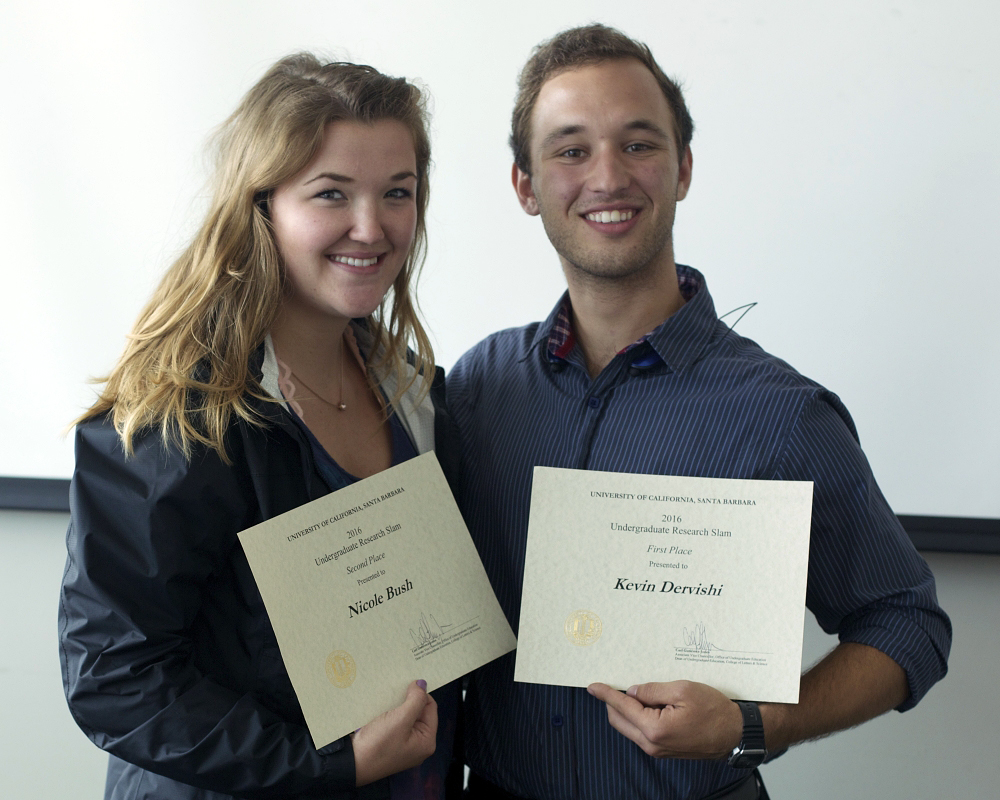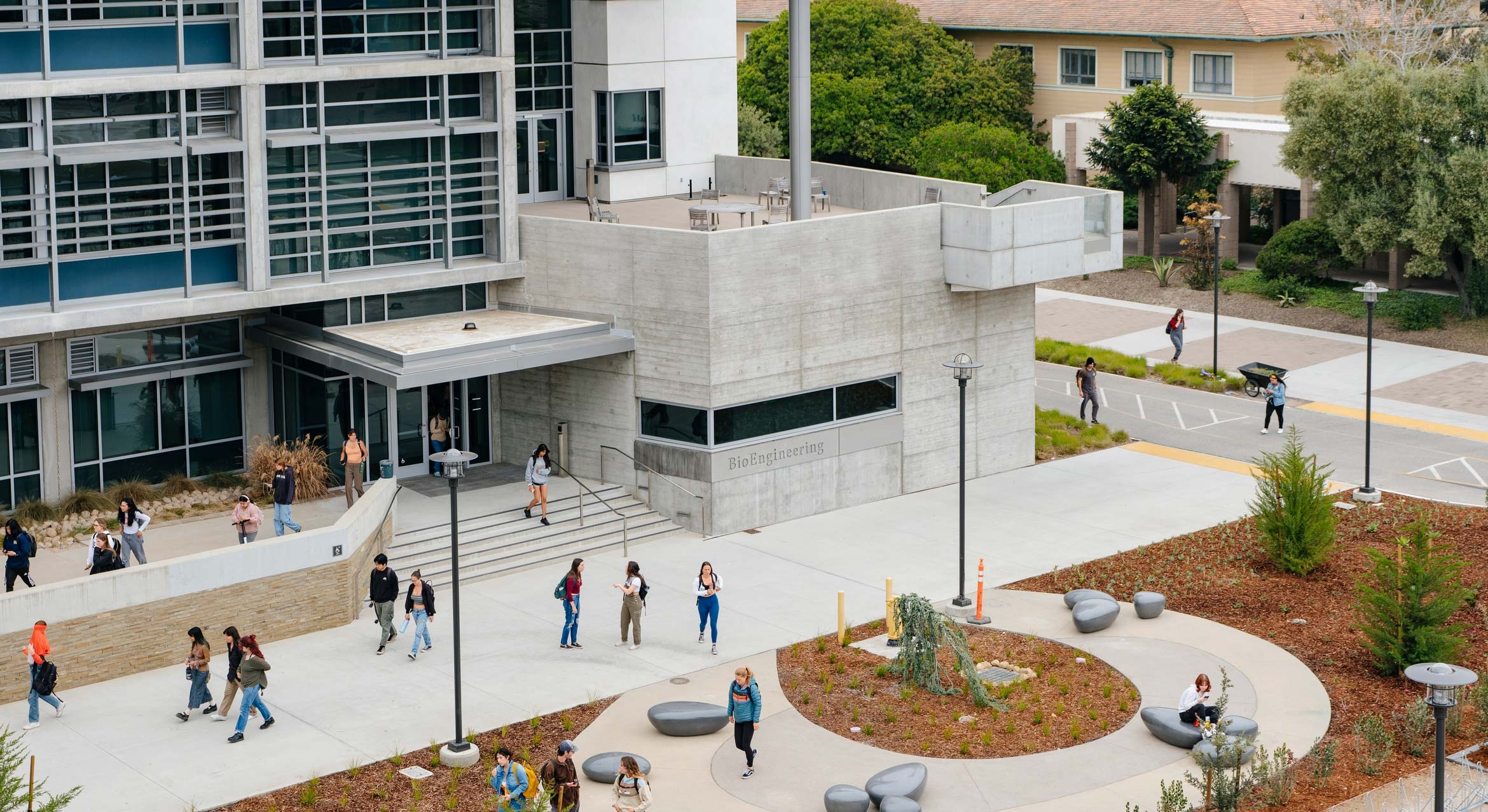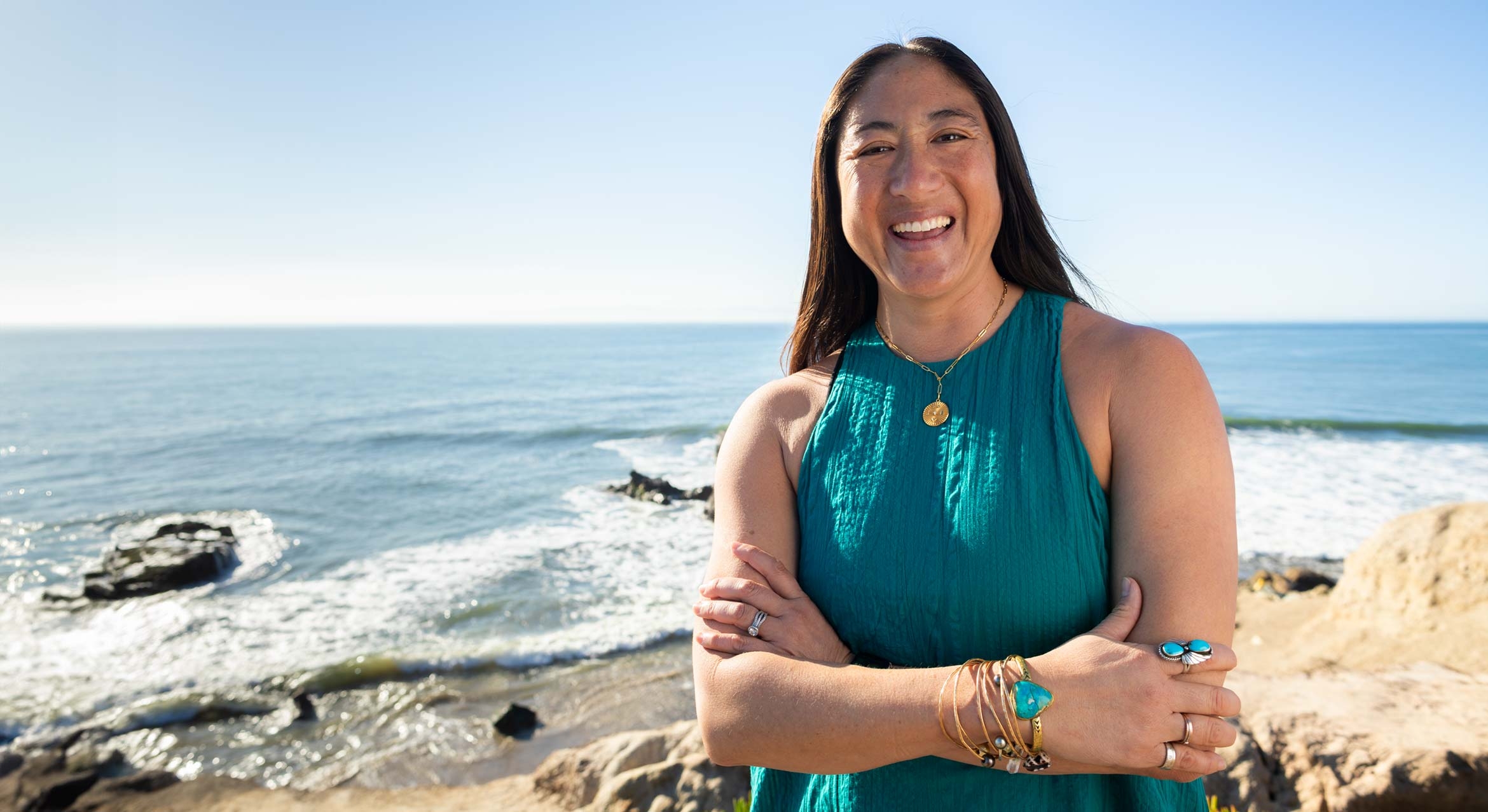
180 Seconds
The audience listened in rapt attention to the three-minute segments that explored, among other topics, how xanthan gum added to soil might bolster California’s wine grape crops, how mindfulness meditation helps reduce stress in breast cancer survivors and how Wi-Fi could be provided to the homeless.
This is UC Santa Barbara’s annual Undergraduate Research Slam. The event gives students — 50 this year — the opportunity to present their academic research in 180 seconds or less. Fifteen finalists, selected from the initial rounds, competed for prizes, and the winners were announced on Thursday.
College of Creative Studies (CCS) junior Kevin Dervishi took first place and the $2,500 prize. Nicole Bush, a CCS senior, came in second and received $2,000; Sarah Bay, a senior in the College of Letters and Science, finished third and came away with $1,500.
“The undergraduate slam gives our talented students a unique opportunity to communicate their fascinating research to a panel of judges and creates a strong sense of academic community and fun among our undergraduate population,” said Carl Gutiérrez-Jones, associate vice chancellor and dean of undergraduate education. “We are so impressed with the quality of the research our students are doing. It’s not just the scope and sophistication of the work that continues to dazzle us; these students are truly passionate and truly poised as presenters.”
Dervishi is a member of professor Stuart Feinstein’s lab in the campus’s Neuroscience Research Institute. His research on tau protein revealed a possible mechanism — electric charges in the protein itself — that may cause tau to form the tangles seen in the brains of people with Alzheimer’s disease.
“I felt like I did amazing but I feel like everyone was amazing,” Dervishi said. “I have never worked so hard for a presentation and I was just honored to be part of that group. I’m unbelievably honored to get first place.”
Bush, who works with fruit flies in the Denise Montell Lab in the Department of Molecular, Cellular, and Developmental Biology, has studied circularized ribonucleic acid (RNA) and its potential functions in a cell. Her experiment design uses CRISPR — an RNA-guided gene-editing platform — to remove a single circularized RNA from a fruit fly egg. Tests on altered eggs might reveal changes that could help scientists better understand the function of circularized RNA.
Bay, working with anthropologist Aaron Blackwell, studied whether naturally induced changes in testosterone are associated with short-term immunological changes. If that turns out to be the case, it may clarify that fluctuations of this hormone contribute to making men more susceptible to bacterial, viral, fungal and parasitic infections.
According to university data, the 50 students participating in this year’s undergraduate slam are just the tip of the research iceberg. Fifty-six percent of undergraduates are involved in some form of research during their time at UC Santa Barbara. “We wanted to have a forum where they could highlight their research in addition to the Undergraduate Research Colloquium,” said Linda Adler-Kassner, associate dean of undergraduate education.
Students who prepared poster presentations for the colloquium were eligible to apply for the slam. This year, the number was capped at 50, even though more students wanted to participate.
“The slam provides a great opportunity to show how engaged our students are in undergraduate research, how important the research that they’re doing is and how creatively they can present that to a diverse audience,” said Adler-Kassner, also a professor in the Writing Program. “As a faculty member invested in undergraduates and their learning, I really enjoy seeing the work that’s happening and hearing students talk about their work in ways that are accessible to a wide audience.”



